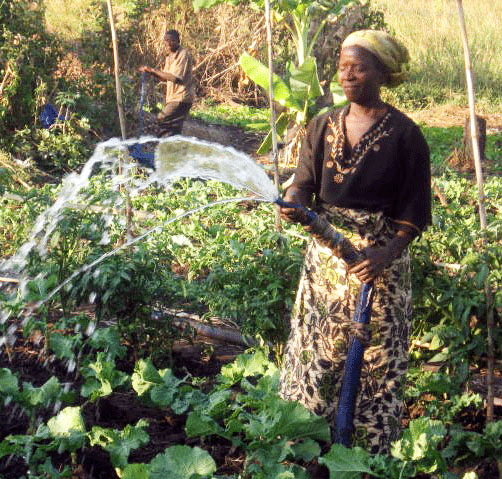
“In this part of Zambia, it is common for farmers to lose crops due to either lack of rainfall when it is needed or to too much rainfall and flooding,” said Justin Kadyeni who manages the Diaconia Department of World Renew’s partner, the Reformed Church in Zambia (RCZ).
Kadyeni works in the Chipata and Katete Districts in Eastern Zambia where communities experience frequent droughts and floods. The impacts of these disasters are worsened because of farming techniques that have depleted the soil, reduced ground cover, and caused erosion. The resulting lack of food is devastating to families.
With funding from the Canadian Foodgrains Bank (CFGB), World Renew is working with RCZ to teach new farming techniques to farmers in these villages. By farming a different way and trying new seeds, these communities will be better equipped to withstand disasters like floods and droughts.
As a result, farmers are already seeing that they can produce enough food from their land to feed their families for the whole year.
“When we visited the communities prior to the start of this project, farmers unanimously agreed that soil fertility was the biggest obstacle they had in achieving food security,” said Kadyeni. “By promoting technologies that improve both soil fertility and crop yields, farmers are now growing enough food to feed their families from their existing land.”
By the end of this program, 2,100 families — over 12,000 people — in Chipata and Katete will benefit from a more plentiful harvest. And this won’t just be a one-time occurrence. By learning new ways of farming their land, preserving their soil, and growing new crops, they will be equipped to feed their families for years to come.
